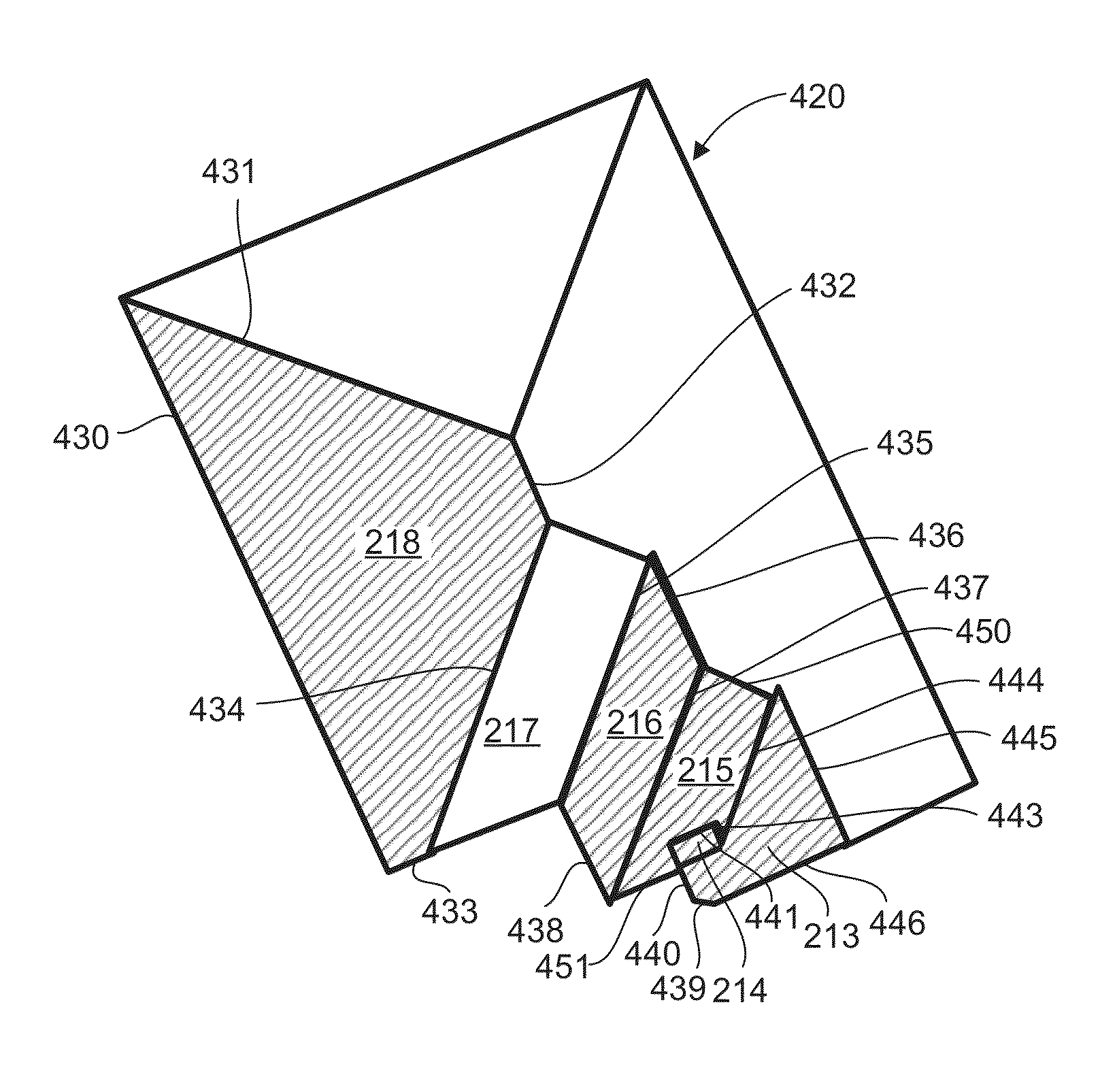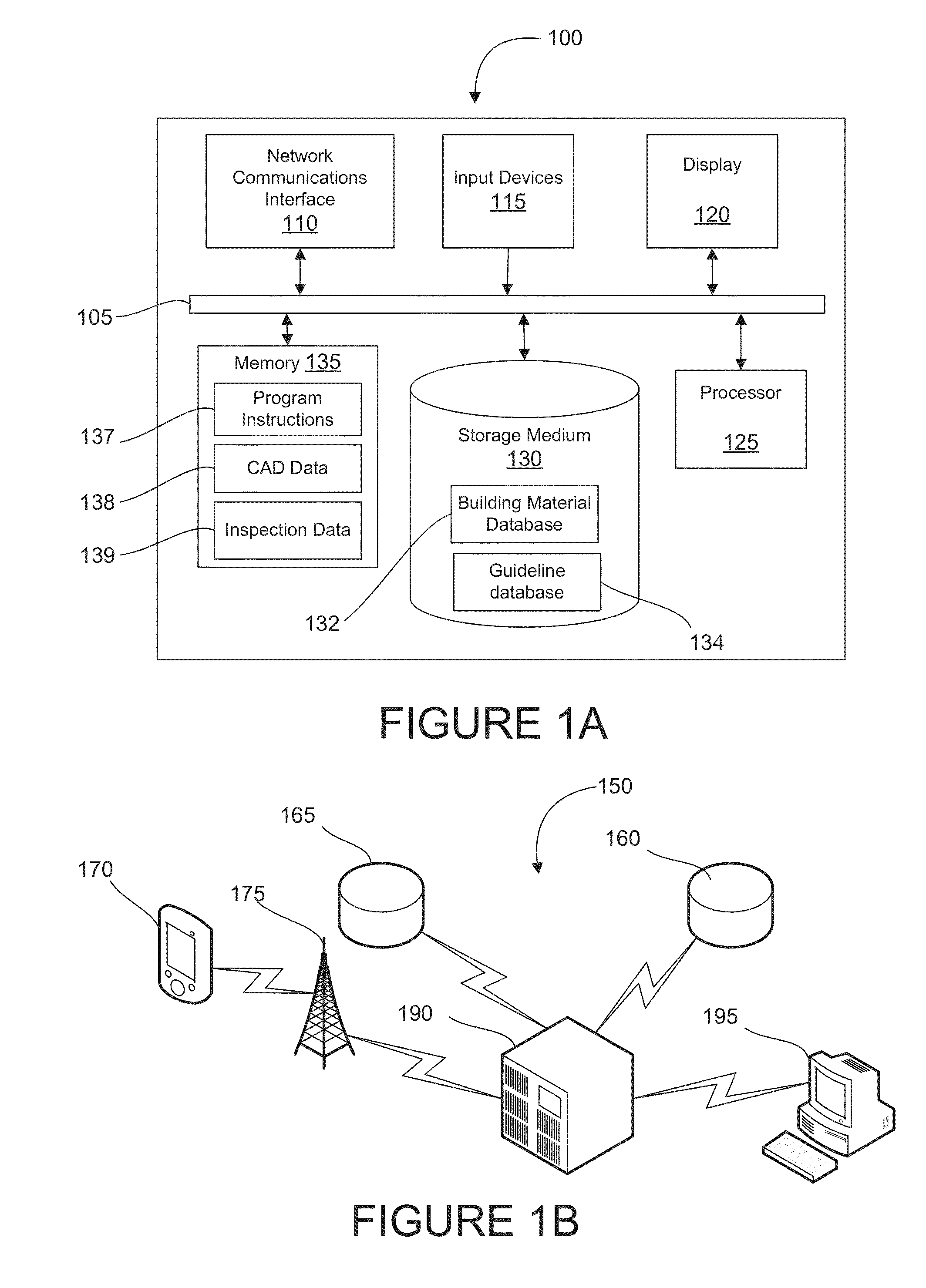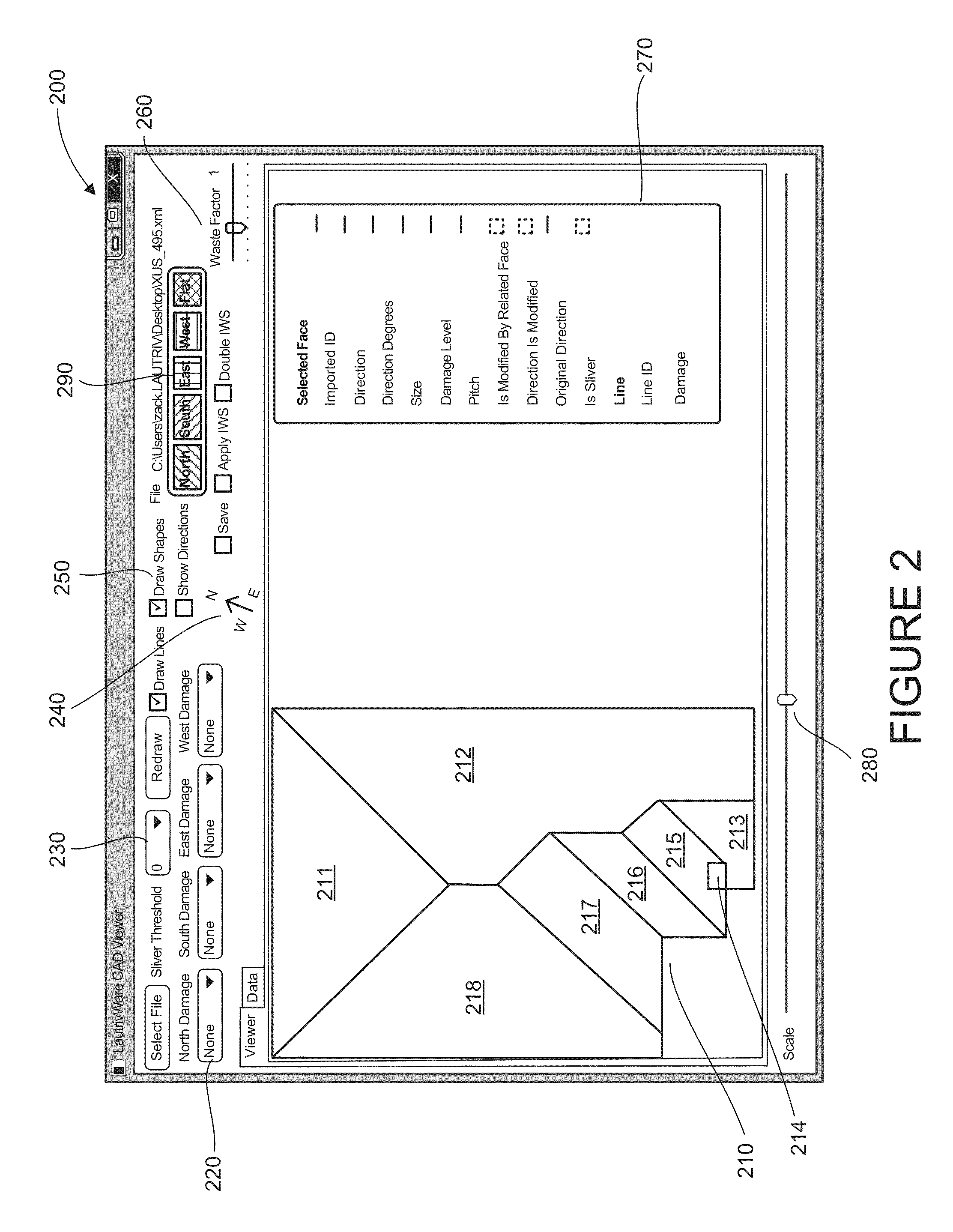Method and System for Property Damage Analysis
a technology for property damage and analysis methods, applied in the field of methods and systems for building facet analysis, can solve the problems of carrier missed significant opportunities to collect statistical and quantitative analytics, lawsuits, and costly exposure to inaccurate payments
- Summary
- Abstract
- Description
- Claims
- Application Information
AI Technical Summary
Benefits of technology
Problems solved by technology
Method used
Image
Examples
Embodiment Construction
[0041]Referring now to the drawings, where like or similar elements are designated with identical reference numerals throughout the several views, and referring in particular to FIG. 1A, it illustrates a functional block diagram of a computer 100 in accordance with an illustrative embodiment of the invention. In FIG. 1A, processor 125 communicates over data bus 105 with input devices 115, display 120, network communications interface 110, storage medium 130, and memory 135. Though FIG. 1A shows only a single processor, multiple processors or a multi-core processor may be present in some embodiments. Input devices 115 include, for example, a keyboard, a mouse or other pointing device, or other devices that are used to input data or commands to computer system 100 to control its operation. Network communications interfaces 110 may include, for example various serial or parallel interfaces for communicating with a network or one or more peripherals.
[0042]Memory 135 may include, without...
PUM
 Login to View More
Login to View More Abstract
Description
Claims
Application Information
 Login to View More
Login to View More - R&D
- Intellectual Property
- Life Sciences
- Materials
- Tech Scout
- Unparalleled Data Quality
- Higher Quality Content
- 60% Fewer Hallucinations
Browse by: Latest US Patents, China's latest patents, Technical Efficacy Thesaurus, Application Domain, Technology Topic, Popular Technical Reports.
© 2025 PatSnap. All rights reserved.Legal|Privacy policy|Modern Slavery Act Transparency Statement|Sitemap|About US| Contact US: help@patsnap.com



